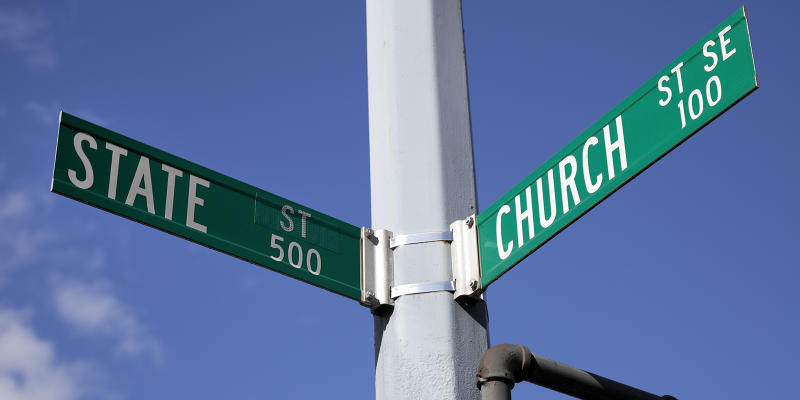The United States was the first nation in history to build its society on the foundation of separation between church and state. The First Amendment to the Constitution is the cornerstone of American religious freedom, ensuring through the Establishment Clause and the Free Exercise Clause that the government does not support religious practices, favor one religion over another or unnecessarily interfere with the private practice of religion. The founders of our country recognized that what makes religion so powerful is the unique and diverse ways in which people practice it. Separation of church and state is not only a moral issue but also a practical, legal, and political one. When church and state are mixed, it harms them both. When the government imposes on religion, religion loses the independence guaranteed to it by the Constitution.
Why Should Jews Care
Neither Biblical texts nor Talmudic rulings completely explain the Jewish community’s strong commitment to the separation of church and state. Rather, the Jewish historical experience as “strangers in a strange land,” often suffering from persecution as a religious minority, informs our support for a separation of religion and state in the United States. The First Amendment made the United States the refuge of choice for Jews and others throughout the world when faced with persecution and oppression in countries without equivalent guarantees. American Jews have enjoyed the constitutionally-protected freedom to exercise religion and to organize communal lives under equal protection of the law. As members of a religious minority whose history is so dominated by oppression, we are especially sensitive to any effort to weaken the safeguards of pluralism and minority expression.
Take Action
Tell your Governor that Chaplains Don’t Belong in Public Schools
In states across the country, lawmakers are attempting to pass legislation that would allow chaplains to serve as school counselors without obtaining the necessary training or certification. Installing chaplains in public schools threatens students’ religious freedom and is not a viable solution to addressing the need for increased mental health resources. Urge your state lawmakers to oppose bills that install chaplains in public schools.
Support the Johnson Amendment
For more than 50 years, a provision in the federal tax code has prohibited 501(c)(3) organizations, including houses of worship, from engaging in partisan politics. This crucial provision, known as the “Johnson Amendment,” has safeguarded the integrity of both religious institutions and the political process by protecting the separation of church and state. Any effort to weaken or repeal the prohibition on partisan politicking undermines synagogues' independence and the First Amendment principle of religious freedom and must be opposed.
What's New
HHS Announces Dangerous Moves to Strip Away Key Civil Rights Protections in Health Care and Social Services
Heading Back to School? Learn What Judaism Can Teach Us about the Importance of Public Education
Related Press Releases
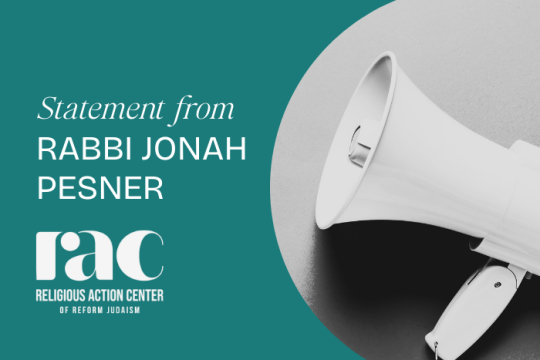
Reform Jewish Leader Condemns IRS Decree Allowing Houses of Worship to Endorse Candidates
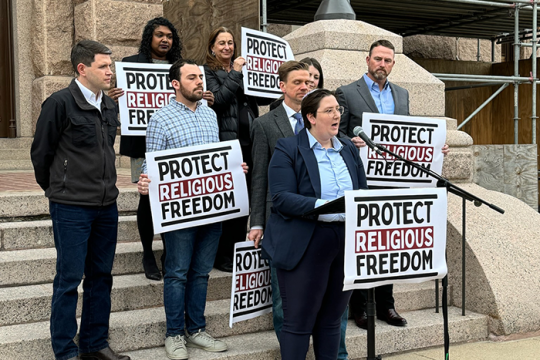
RAC-TX and Interfaith Partners Lead Successful Pushback to School Chaplain Bill
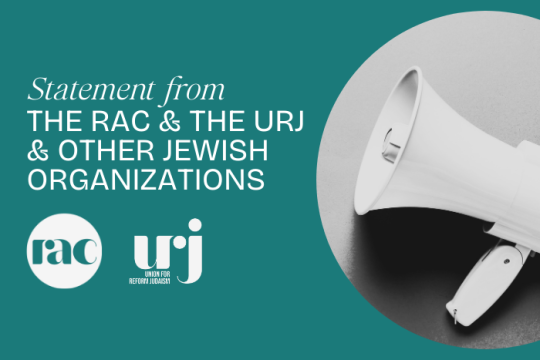
Faith Organizations' Statement Regarding State Legislation Granting Religious Exemptions to Emergency Orders
Related Issues
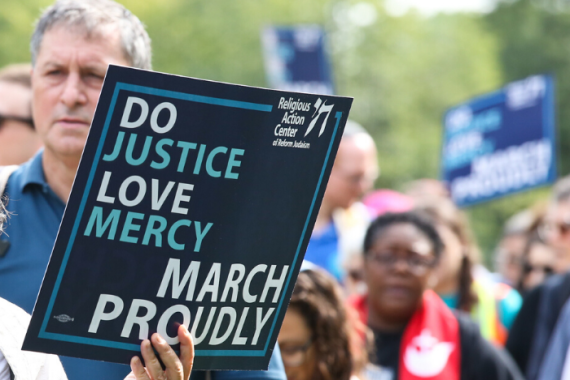
The Johnson Amendment
The Johnson Amendment is a provision in the federal tax code that prohibits partisan politicking by non-profits, including houses of worship. For more than 50 years, the Johnson Amendment has safeguarded the integrity of both religious institutions and the political process by protecting the separation of church and state.
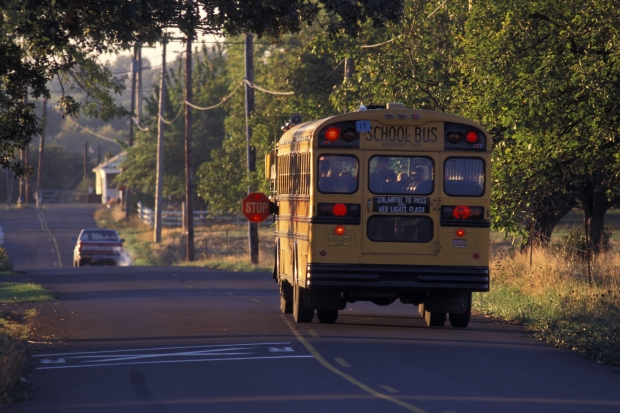
School Vouchers
Vouchers are a form of government subsidy given to parents for use toward tuition and related expenses in private and parochial schools as an alternative to attending public schools. Voucher programs divert public taxpayer money to private schools, including parochial and other religious schools.
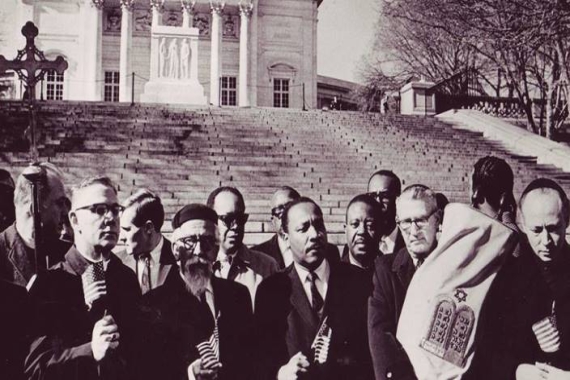
Protecting Civil Rights
Since assuming office, the Trump administration has proposed policies that allow government agencies, grantees, and contractors to discriminate against employees and beneficiaries on the basis of religion while still receiving federal funding.

Reform Judaism's Resolutions on Separation of Church and State
Learn more about the position of the Reform Movement on these key issues, and read the formal resolutions by URJ and CCAR.
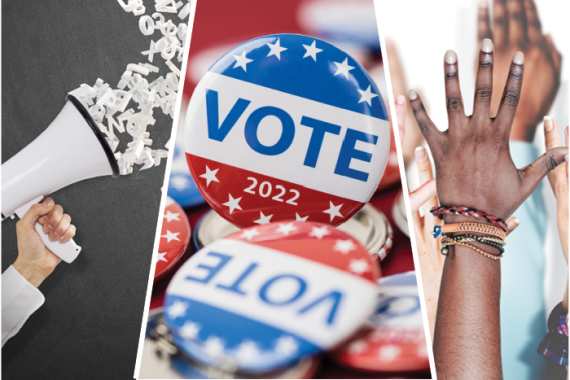
Every Voice, Every Vote
The Reform Jewish Movement’s Every Voice, Every Vote Campaign is a nonpartisan effort, grounded in our Jewish values and commitment to racial justice, to strengthen our democracy by encouraging and protecting voter participation.
Contact Our Legislative Assistants
For more information on this issue, contact Eisendrath Legislative Assistant Tamara Upfal.
Learn What Our Partners are Doing
The RAC is a member of the National Coalition for Public Education, which supports public schools and opposes the funneling of public money to private and religious schools through vouchers, tuition tax credits, education savings accounts, and portability.
RAC Email Sign Up
Learn more about the RAC's key issues and get involved by signing up for the legislative updates newsletter.
